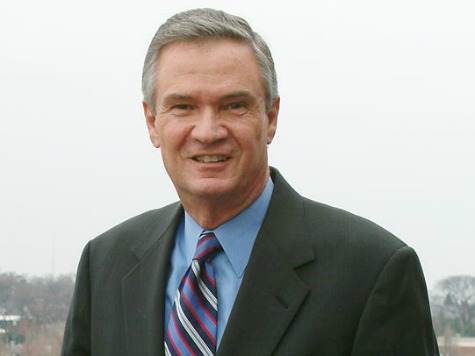
Democrats’ attempt to portray Paul Ryan as an extremist who would “end Medicare as we know it” hasn’t been going very well, largely because the Medicare plan he proposed isn’t really that extreme by historical standards. In fact, the shrill attempt to demonize Ryan’s plan tells us as much about how far Democrats have moved to the left over the last decade as it does about the plan itself.
In 1997, Congress passed a Balanced Budget Act which established the Bipartisan Commission on the Future of Medicare. The Commission was made up of 17 members split between Republicans and Democrats. The tie-breaker in the group was Senator John Breaux, a moderate Democrat from Louisiana, who was selected as the Chairman of the group in an agreement between President Clinton, Newt Gingrich, and Trent Lott. Like his friend Clinton, Breaux was a member of the Democratic Leadership Council. The Washington Post described him as a “centrist of the quaint old school that loves to cut deals.”
The Commission was tasked with coming up with recommendations on reforming Medicare and reporting them to Congress by March 1, 1999. Toward that end, Breaux and his 16 colleagues worked for more than a year, creating four task forces to study different aspects of the problem.
What the group eventually came up with was a plan known as premium support. If that sounds familiar it’s because Paul Ryan’s reform is also a premium support model. In essence, this means providing money to individuals which can then shop for the best deal among various private insurers.
The Senator’s summary of the plan can be watched here. Breaux’s remarks begin at three minutes. Though he didn’t seem to speak up for the plan, Breaux’s fellow Democratic Senator J. Robert Kerrey did eventually vote for the proposal.
Then, as now, the commission’s work was doomed by politics. Bill Clinton rejected the proposal in a White House news conference on the same day the commission was scheduled to have a final vote (they failed to reach the 11 votes required for consensus). Some of the more liberal members of Congress explicitly rejected Breaux’s direction. In the House, Rep. Sherrod Brown attacked the idea of premium support, comparing it to managed care. In the Senate, Paul Wellstone suggested the attempt to “voucherize” Medicare did “serious damage” to the program. He went on to state his preference for adopting a single payer system.
But even as the left wing of the Democratic Party rejected Breaux’s proposal, they expressed their respect for him. Senator Wellstone said, “I have respect for Senators who stake out a position that they think is the right thing to do. Even if there’s lots of opposition, they have the courage to do so. Senator Breaux is that kind of Senator.” Senator Kent Conrad, who also spoke in opposition to the commission’s plan, said “We ought to keep our powder dry until we consider all of the options that we might want to adopt to reform Medicare. And again I say this with the greatest of respect for Senator Breaux and Senator Kerrey and other members who served on that commission.”
Both the arguments for and against the recommendations of the Bipartisan Commission on the Future of Medicare foreshadow the ones being made today. The only real difference is that, back in 1999, a Democrat was proposing the changes and the left of his own party was rejecting those proposals in a mostly respectful tone. Today, with a Republican making similar suggestions, Democrats (with the notable exception of Erskine Bowles) seem eager to demonize Paul Ryan’s plan as extremist. But it’s not the plan that has changed so much as the make up of the party now in power.

COMMENTS
Please let us know if you're having issues with commenting.